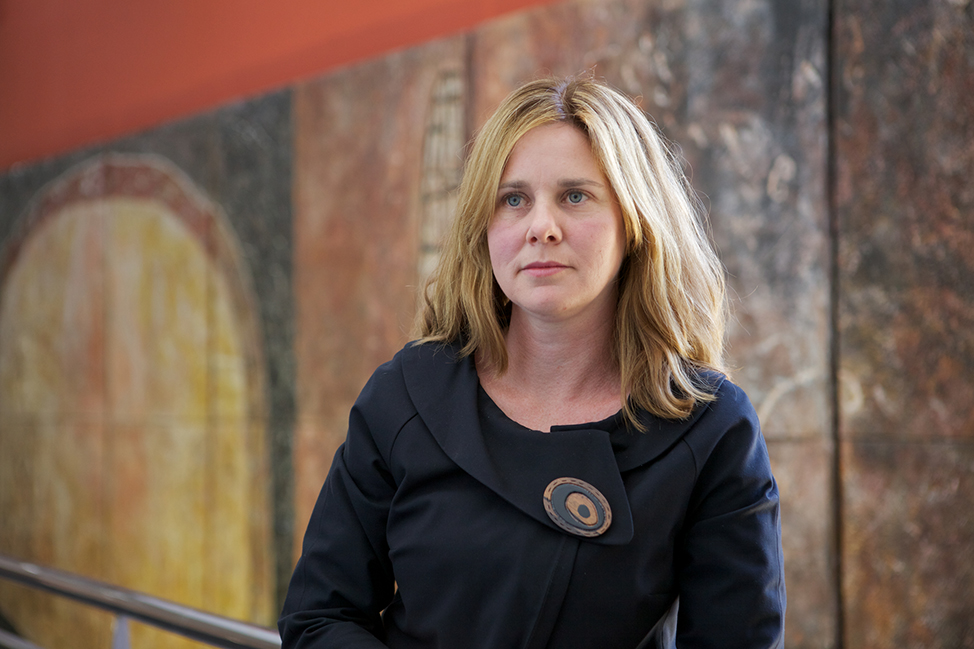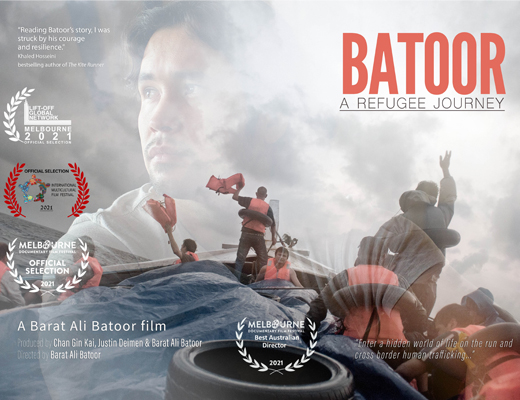- connecting our global alumni network
31 March 2023
Documenting a journey is just the beginning
Award-winning photographer and filmmaker Barat Ali Batoor’s film Batoor: A Refugee Journey will screen to a full house at The Bob Hawke Prime Ministerial Centre on 1 April. Following the film, there will be a discussion between Batoor, UniSA Professor Nicholas Procter and PhD candidate Mary Anne Kenny, who explains her thesis below.

The documentary Batoor: A Refugee Journey by award-winning photojournalist Barat Ali Batoor highlights the difficulties that asylum seekers face when they flee their homeland to seek protection in another country. The film provides a unique, first-hand perspective of his journey and reveals the traumas and difficulties encountered as people leave their countries in search of safety.
Unfortunately, after arrival in a country such as Australia, asylum seekers continue to experience difficulties and trauma due to the impacts of laws and policies that are designed to deter others from coming. UniSA PhD research student, Mary Anne Kenny, has been working with supervisors Professor Nicholas Procter from the Mental Health and Suicide Prevention Research and Education Group and Professor Carol Grech on the mental health impacts of these laws and policies as they apply to asylum seekers who arrive in Australia by boat.
Mary Anne’s PhD topic, Mental Health and the Fast Track Assessment of asylum seeker claims: The experiences of refugees and legal professionals, is the result of transdisciplinary research and draws on expertise in law and mental health. Mary Anne provides a summary of her thesis below.

One of the most detrimental elements of Australian refugee law and policy in the past decade has been the use of a fast-track assessment process and temporary visas. Temporary protection has been the only option available for people who arrived by boat and were recognised as refugees. Known as the “legacy caseload," these people are caught in a system of law and policy that keeps them in a state of perpetual limbo.
Our research examined the impact of those laws and policies and the detrimental impact it has had on the mental health of asylum seekers leading to a state of what we have termed “lethal hopelessness” – there have been at least 28 suicides recorded during the past six years. Further research is examining how legal professionals working with clients from this group identify and respond to the distress they witness as they help their clients navigate a difficult and complex system.
In 2022 our research team was approached by the UNSW Kaldor Centre for International Refugee Law to prepare a policy brief aimed at the incoming Labor government with recommendations on how it could transition people from temporary to permanent visas. The recommendations included a trauma-informed strategy to help reduce mental distress, deterioration and retraumatisation of asylum seekers. On 13 February 2023 the Labor government provided welcome news announcing that people granted temporary protection visas who had arrived in Australia before 2014 would be granted permanent residence.
The next stage of the research is to publish the findings arising out of surveys and interviews with 38 legal professionals working with asylum seekers. The participants were all involved in taking detailed histories from asylum seekers (including exposure to traumatic events), simultaneously supporting, witnessing, and responding to the problems associated with living with insecure visa status. Mental distress and deterioration featured strongly among the themes. Participants spoke of clients who had difficulties concentrating on and engaging in processes attendant upon refugee status determination. Some legal professionals reported that their clients commonly expressed feelings of hopelessness, defeat, and entrapment. Also common were expressions of suicidal ideation, and it was reported that some clients died by suicide during the process. All participants spoke of a direct connection between asylum seekers experiencing uncertainty and deteriorating mental health over time, with fluctuations in hopelessness, anger, and withdrawal. The distress and difficulties experienced by asylum seekers also induced strain and breakdown in family relationships.
These findings are discussed in my thesis alongside practical trauma-informed suicide prevention implications for clinicians, legal professionals who interview asylum seekers, plus government and government policymakers.




